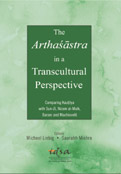Interrogating ‘Hyphenated Cultures’: India’s Strategic Culture and its Intelligence Culture
In the late 1950s, the concept of 'political culture' was first developed. Towards the end of the Cold War, scholars in International Relations (IR) theory and security studies developed the concept of 'strategic culture'. Over a period, state bureaucracies were thematised by scholars of comparative politics leading to the concept of 'bureaucratic culture'. Lastly, in the second decade of the twenty-first century, a comparative turn in intelligence studies began to emerge with the concept of (national) 'intelligence culture'.
- Michael Liebig |
- July-September 2021 |





